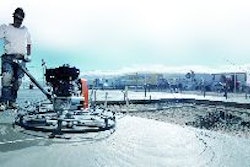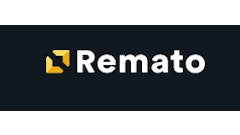RALEIGH, N.C. - The FMI/CMAA Tenth Annual Survey of Owners portrays a construction owner community responding to changing economic conditions by looking to service providers for more comprehensive support across the entire building lifecycle.
Survey results were presented by Mark Bridgers and Jeff Lukowski at the CURT 2009 National Conference in Orlando, Fla. on November 17, 2009. This year's survey sought to measure current owner attitudes against those of 2006, and to project changes in owner needs and expectations between now and 2014.
Among the key findings is an increasing reliance on outsourcing across all project phases but particularly in later stages: "Program activation/commissioning and operations and maintenance demonstrate a 60 percent and 30 percent acceleration in outsource use respectively," the survey report states. FMI views the increasing use of tools such as Lean Practices, BIM and IPD as ways to facilitate the outsourcing of construction and O&M activity.
According to Mark Bridgers, principal with FMI Corporation and author of the report, "Owners are outsourcing more work, and more kinds of work, and they expect this trend to continue. In particular, owners are seeking outside support for program activation and ongoing operations and maintenance activities, but the increase in outsourcing will embrace all phases, beginning in pre-design."
This is one aspect of an "holistic strategy" increasingly seen among owners, the report comments. "This holistic strategy can be observed by the increasing number of owners using both a program management, versus a project centric, approach and an asset management approach to capital construction. This approach is demonstrated by the top 10 most important standards of practices containing at least one practice originating from each of the major phases of the construction process. In addition, five of 11 areas most frequently mentioned for improvement by owners relate to or imply the use of a life cycle cost type approach," the study also notes.
Between 2009 and 2014, owners expect to attach significantly more importance to the following areas:
- Selecting the most effective project delivery system
- Maintenance management support in both process and technologies
- Proactive strategies to avoid claims and disputes
- Development and use of a construction management plan
- Effective documentation and processes designed to support facility commissioning or turnover
Owners were also asked to identify the values or areas in which they feel the most need for improvement among specific groups of service providers. They identified team coordination above all, ranking this value first for every group or firm type with the lone exception of labor/unions, for which knowledge transfer and safe workplace were the most frequently mentioned.
More specifically, owners need more commitment to collaboration from their architects and general contractors, while Program Managers and Construction Management service providers are seen as performing better in this regard.
"A variety of services or functions viewed as relatively unimportant today will gain significantly in perceived importance by 2014," the report says. "These emerging key areas reinforce the survey's overall finding that owners are seeking a more holistic approach to their construction. Among the largest "gainers" are factors related to ongoing maintenance and applications of new technologies to provide effective maintenance management.
FMI is the largest provider of Management Consulting and Investment Banking to the worldwide construction industry.
Founded in 1953 by Dr. Emol A. Fails, FMI delivers innovative, customized solutions to contractors; architects and engineers; construction materials producers; manufacturers and suppliers of building materials and construction equipment; private owners, managers, and developers; residential builders; utility companies; surety companies and industry trade associations.
FMI creates value through enhanced performance of companies, teams and individuals and by mitigating risk. FMI is headquartered in Raleigh, N.C., and has offices in Denver, Phoenix and Tampa, Fla. For more information, visit www.fminet.com.

















